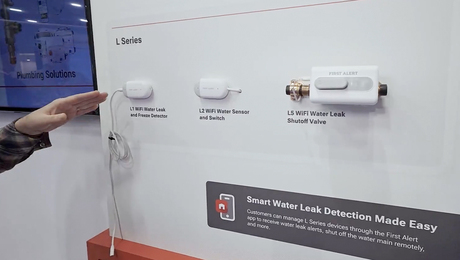Turn Demanding Customers From Irritants to Assets
Self-Taught MBA: Bulldogs and double agents.

I have often felt that the building business would be a lot more fun without clients. This is why I became a spec builder rather than a custom builder, allowing me to build without the hassles of a hovering customer slowing down the job and increasing costs. But even so, I still have had to sell my houses to make any money, and as soon as money exchanges hands, you have a client.
Some clients resemble bulldogs that bark and snap at you, demanding a level of perfection and predictability that’s difficult to achieve with a handmade and site-built product. The natural tendency is to become defensive, or even respond aggressively. And although this only makes things worse, as we all know, it also misses an excellent opportunity to improve. Because more than a platitude, the customer is often, if not always, right. She has her eye trained on the job she’s hired you to do with singular focus. She often sees defects you’ve missed, or things you have come to justify as standard trade practice–good enough, but not quite perfect.
The Kaizen of Customer Complaints
The concept of kaizen comes to the business world courtesy of the Japanese, known for their love of perfection. Kaizen combines two words, kai, which translates as “change,” and zen, which translates as “for the good.” It’s not so much a business method as a personal outlook, the notion that any process or product can be improved, and that companies and the people who labor should constantly strive to improve their products and services. It’s essentially the opposite of standard trade practice.
To wit, we all know that if Japanese builders, who provide their clients with 60-year warranties, suddenly came to America, they would disrupt our building business model the same way Toyota forced Detroit to rethink and retool the auto industry.
With the mindset of a kaizen master, a builder would view customer complaints as invaluable insights and opportunities to make change for the good.
It’s a lot easier said than done.
The Double-Agent Strategy
In my case, age has acted as a naturally occurring kaizen. It’s the one and perhaps only area that I am truly satisfied with what nature has wrought on me as the decades pile higher and higher. If not quite changed for good–at least I have changed for the better: Nowadays I not only remain unperturbed by customer complaints, agreeing with them most of time, but have learned to use them to my advantage. I call this the double-agent strategy.
As the boss, I am also my company’s biggest and most important client–I support my subs, suppliers, and employees financially. I pay them for products and services in much the way my homebuyers pay me. I have client expectations, sometimes big disappointments. But instead of becoming the bulldog, as I did in my younger days, I let others do the dirty work by leveraging customer complaints as company teaching opportunities.
In a recent case, when a customer complained to me that we always requested material selections at the last minute and then pushed her to respond more quickly than she felt comfortable, given she would have to live with her decisions long after we were off the job, I thought–she’s absolutely right. So after assuring her this would change, I asked for a favor. I asked her to write me a complaint letter–an email is fine, I told her.
This was on a Thursday, and we have company meetings on Friday mornings. I was pleased to find her long and very reasonable, but impassioned email in my inbox just before the meeting. I read it allowed and asked for feedback. It started with statements like, “She should read her contract,” because our contract actually includes a selection criteria and schedule of due-dates. But we’re not in the business of pointing out our customer’s shortcomings. So I asked to see how many of my employees had read their contracts. In fact, none had even read their employee manual. So I asked again, this time, how we can avoid this complaint from ever occurring again, and the employees engaged in a productive discussion that concluded with one more line item added the company’s critical-path chart–remind the customer when selections are due with two weeks of anticipation.
It was a small and perhaps obvious improvement, but one that will change us for the good, just a little. By taking advantage of the customer’s dissatisfaction, which I often share, I was able to provide a positive, customer-service response, while instructing employees without barking or becoming a bully.
Fine Homebuilding Recommended Products
Fine Homebuilding receives a commission for items purchased through links on this site, including Amazon Associates and other affiliate advertising programs.

Reliable Crimp Connectors

Affordable IR Camera

Handy Heat Gun




























View Comments
Fernando, Thanks for this well-written and thoughtful piece. I am a custom builder, and I've recently been guilty - for the first time in my 25 year career - of becoming the bulldog.
Upon reflecting as to why, I believe that in this case the client is truly asking for too much: a higher level of service than he's willing to pay for. The client is an engineer involved in big commercial construction, and I think this is just the way he does business.
I've learned quite a bit about negotiating to be sure, but the biggest lesson I've come away with from this job is that good will has value on both sides of the contractor / client relationship. Some folks just won't be happy until they've extracted their pound of flesh.
And that client is almost never right.
Thanks for your comments, Dovetail, and I am sorry to hear of your unfortunate situation with an unreasonable client. Of course you're right that the customer is not "always" right, although I'd disagree with the opposite conclusion, too. I have found in my experience with life in general that I can only fix my own mistakes, so I tend to focus on only my mistakes and not the other fellows. But I do admit to having felt exactly as you do more than once. Some people are very hard to please. Others are impossible.